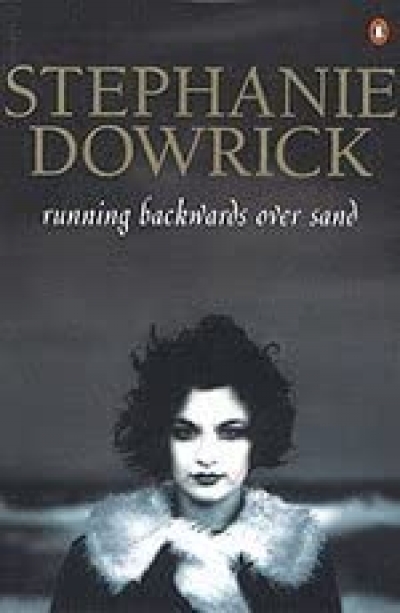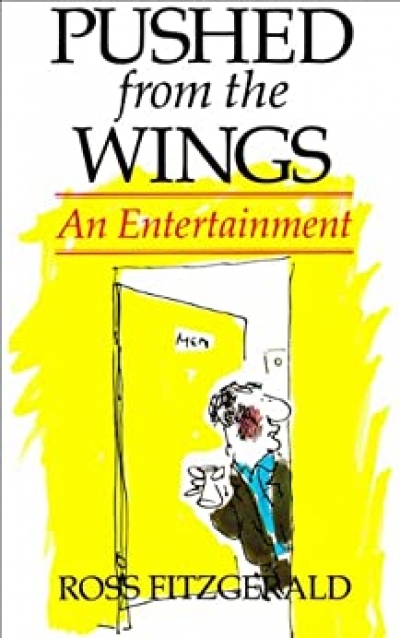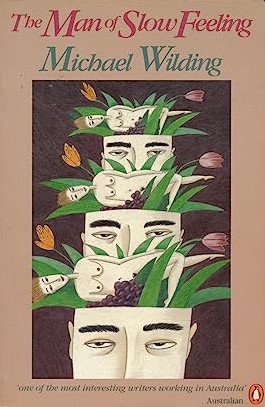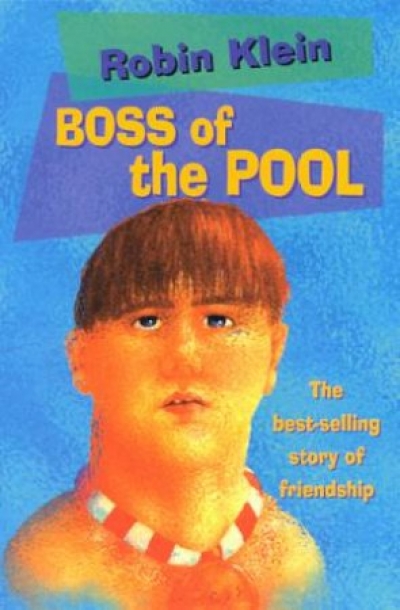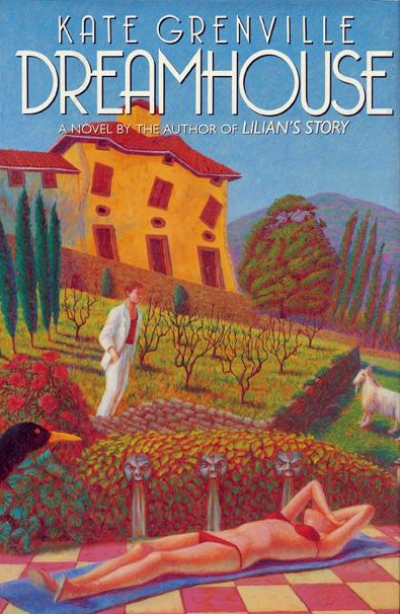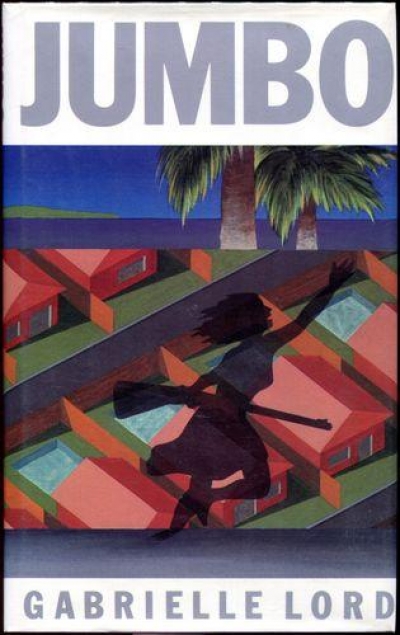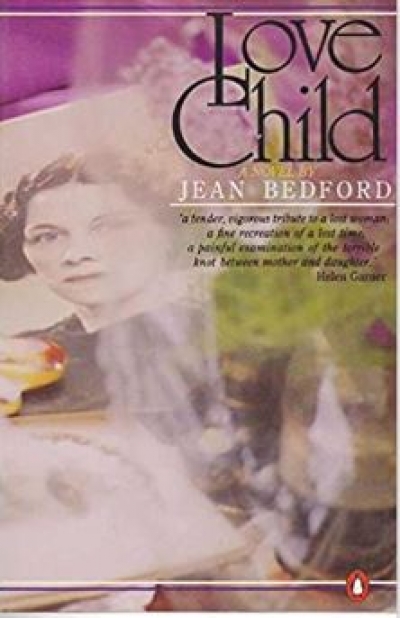Fiction
With her first novel (published in 1985 and now available in paperback), publisher and writer Stephanie Dowrick has created a long and uneven though often absorbing work, tracing the life of Zoë Delighty from birth to mature womanhood. It is a testament to the heroine’s survival of the vicissitudes of her active life, and her struggle to counter the malign influences of her girlhood which dog her through her attempts to engage herself creatively in life.
... (read more)Pushed from the Wings: An entertainment by Ross Fitzgerald (illustrated by Alan Moir)
By the time I was 35, I’d spent fifteen years as a student and teacher in universities. I was scornful of those who sneered at ‘Sheltered Workshops’ – a fashionable putdown in the early 70s; at the same time, I mocked Zelman Cowan’s observation – when playing stag at bay and asserting that he really was au fait with academia – that ‘I have spent all my adult life in universities’. But they are real places.
... (read more)A common approach when talking about women writers is to outline the scope of their work, preferably to demonstrate and affirm its versatility and, implicitly, its value. There’s no doubt that Helen Garner, for example, has suffered under critics’ and reviewers’ insistence that her work deals only with a ...
... (read more)‘The Man of Slow Feeling’ is the title story of a selection of Michael Wilding’s short stories published between 1972 and 1985.
These stories vary widely in setting, content, character, tone, but Wilding’s voice is consistent. By ‘voice’ I mean that if I was given an unidentified story in an envelope I’d be able to tell if it was Wilding’s before I was halfway through. It would be a plain, sealed, brown-paper envelope, of course.
The voice I hear is that of the writer as condemned observer. It records experience, it records itself in the midst of experience, it records itself recording. The title story is apt: the man of slow feeling is broken in the attempt to record and experience at the same time. The voice telling the stories is so distinctive that very soon I gave up trying to keep writer and writing separate in my mind. Whether they are first person narratives or not, the stories are intensely personal. They always seem to reveal what the writer chooses to expose of himself.
... (read more)Room Service: Comic writings of Frank Moorhouse by Frank Moorhouse
Reading Frank Moorhouse is a bit like learning to cook silver beet in some newfangled way and discovering that for years you’ve been chucking the best bits out.
... (read more)Boss of the Pool by Robin Klein & The Princess Who Hated It by Robin Klein
I think it’s time for Robin Klein to slow down, though my ten-year-old daughter Finley wouldn’t thank me for saying so. She almost shivered with excitement last year as she told me that her teacher was reading a chapter of Hating Alison Ashley to the class each day. ‘I just can’t wait for the next bit,’ she said, ‘but I don’t want it to end.’
... (read more)Dreamhouse, written before the wonderful Lilian’s Story (1984 Vogel winner), was the Vogel runner-up in 1983. Kate Grenville’s writing in this novel is clear-headed, strong, both witty and humorous, and above all lifts the imagination high. Dreamhouse wins my ‘Chortle, Gasp’ Prize for black comedy incorporating a design award for ‘best romantic fiction parody’ (it could have been called A Summer in Tuscany). It’s a darkly delightful book to read. Subversion of romantic expectations is immediate, ingenious, and horribly funny. Louise Dufrey is one half of an unlovely couple whose marriage looks perfect but is actually defunct.
... (read more)Gabrielle Lord’s novels – Fortress, Tooth and Claw and now, Jumbo, are all topical, readable, and (I expect) highly marketable. Lord is a scriptwriter as well as a novelist and each of these books seems like a transit point between a great idea and the kind of film which makes you lean forward in your seat and temporarily abandon regular breathing. There is, however, much to be said for them, as novels. They are thrillers, but they are not merely escapist. The plots dislocate everyday events in a way which questions the validity of what passes as socially acceptable. On the other hand, pace, suspense, and social critique seem to substitute for the subtlety and detail which would transform these books into something more than temporarily exciting and even instructive reading experiences. For all the immediacy and significance of Lord’s novels, the vibrancy of her work often seems to me to lie in its potential, rather than in the text at hand. In this respect Jumbo, the most recent novel, does not surpass its predecessors.
... (read more)Peter Cowan’s new novel The Color of the Sky is an elliptical, even enigmatic, narrative. Although specifically labelled a ‘novel’, it is a novella in its concision pf narrative explanation; as well as in its length. The layers of event and reminiscence are multifarious enough to fill out a hefty tome but are compressed in such a way that they become almost cryptic messages requiring considerable deciphering on the part of the reader.
... (read more)It must have seemed as natural to Penguin as money in the bank to ask Helen Gamer to provide a few enticing words for the cover of Jean Bedford’s new book, Love Child. Here, it would appear, is a book very much in the Garner backyard – short, domestic, ‘certainly not ‘loud’ or attention-seeking, but nicely crafted.
... (read more)

